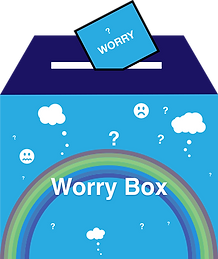Safeguarding
The safety and well-being of the children here at Highfield is our first priority. This is called safeguarding.
Safeguarding children and young people means protecting them from abuse or neglect and getting the right support in place as early as possible. We want our children and young people to feel safe, healthy and thrive. Keeping children safe at Highfield is everybody’s responsibility and you might be surprised to hear that this also includes you – our school community!
If a child is in immediate danger, call the police on 999 straight away.
If you’re worried a child is being abused or neglected
It’s not always easy to know if a child or young person is being abused or neglect. You might’ve noticed bruises but aren’t sure if they’re from playing or from being physically abused. Or you might be worried a child is being neglected because you often hear them crying in distress.
Knowing the signs of abuse can help. But it’s important to remember that every child is different. The NSPCC’s Support and Advice can help you decide what to do if you’re worried about a child.
Highfield’s contact information
At Highfield we have 3 members of staff who are the Designated Safeguarding Leads (DSL) and two members of the Governing Body who are Safeguarding Governors:
| Mr J Feeley (head@highfield.leeds.sch.uk) | Headteacher and DSL |
| Mrs L Bowker (liz.bowker@highfield.leeds.sch.uk) | Deputy Headteacher and DSL |
| Mrs H Calvert (helen.calvert@highfield.leeds.sch.uk) | Learning Mentor and DSL |
| Mrs M Maiden (mmaiden-gov@highfield.leeds.sch.uk) | Safeguarding Lead Governor |
| Mr O Thorne (othorne-gov@highfield.leeds.sch.uk) | Chair of Governors and Safeguarding Governor |
You can contact school with any concerns you may have about a child on 0113 2930155 or email head.highfield@leeds.sch.uk
Children can talk to ChildLine about anything. No problem is too big or too small. Call ChildLine free on 0800 1111 or get in touch online. However children choose to contact ChildLine, they’re in control. It’s confidential and they don’t have to give their name if they don’t want to.
Domestic Violence
Highfield Primary School works closely with West Yorkshire Police to support children who are resident in households where there are incidents of domestic violence and abuse.
Leeds Joint Agency Protocol for Domestic Violence and Abuse: School Notifications (DVA Notifications Process) has been established to support children who are resident in households where there are incidents of domestic violence and abuse. We know that children can be significantly physically or emotionally hurt by being either present in the house or directly witnessing an incident of domestic violence.
The DVA Notification Process has been designed to provide confidential notification to schools on any incidents of domestic violence and abuse which occur within a child’s household that might have an impact on a child whilst they are in school.
The process will ensure that a member of staff is trained to allow them to use the information that has been shared, in confidence, and ensure that school is able to make provision for possible difficulties experienced by children, or their families, who have been involved in or witnessed a domestic violence or abuse incident.
We are keen to offer the best support possible to our pupils and we believe this is going to be extremely beneficial for all those involved.
If you would like further support or information about domestic violence and abuse please go to www.leedsdomesticviolenceandabuse.co.uk
Useful documents
Is something troubling you? Click on the worry box below and let us help you.
Online Safety Information For Parents
Online Safety Information For Children
Signposting
Welcome to the Highfield Signposting section of the website. Here you will find information which you may find useful to support your children.
A website offering free online or phone support for parents, with links for tips and guidance to support parents with eating, being active, sleep and more.
Advice and support with bladder and bowel incontinence and constipation


